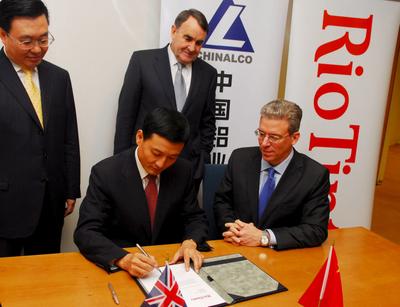More than trade, business abroad involves significant political, not merely economic, interaction between foreign enterprises and the state — not least because China’s dominant investors abroad are state owned enterprises (SOEs). There is growing debate globally about whether and how the role of SOEs affects the benefits from Chinese investment abroad to host countries, a debate that is really about the interaction between national economic and political institutions that are ordered around different principles and political constitutions.
Australia and many other countries enjoy the economic benefit of China’s integration into the world economy. At the same time they need to take proactive positions in managing both their economic and political interests as they are affected by the impact of developments within China and as China’s growing economic presence impacts on the structure of international markets for goods, services, capital and investment. China must also be mindful of the implications of its economic activities in other countries.
The changes associated with Chinese integration into the global economy have seen China seek to conform to established international norms and institutions (for example, through accession to the WTO). At the same time, China has sought to play an increasingly active and constructive role in international diplomacy (for example, in the United Nations and through the six-party talks on North Korea). But despite the significance of these changes and China’s increasingly important role in the world, China’s economy is one still in transition. There are still wide-ranging reforms in progress, and this affects the way in which the market operates across all sectors of the economy. It also has a political system that is different from the broadly representative political systems that typify the established industrial economies. There is no system of international governance for foreign direct investment, such as there is in the WTO for trade on which China might be able to draw on in setting standards for its foreign investment. In no dimension of China’s economic engagement internationally is the interaction between the economic and political system more prominent and important than in respect of the surge in China’s overseas direct investment (FDI).
This week’s lead essay by Xueli Huang reports the results of a study of Chinese investment in the Australian mining sector, emphasising the demands that investing abroad put upon Chinese corporate governance. ‘A crucial issue for Chinese firms’, Huang argues, ‘is the improvement of corporate governance’.
Of interest and practical importance here is the development of an understanding of the way in which Chinese markets and businesses are affected in their activities abroad by evolving economic and political institutions, how participants in these markets interact with the state in their dealings in international markets, and whether the relationship between the market and political system requires particular strategic policy responses from China’s economic partners.
These issues have become a prominent and urgent undercurrent in popular and policy discussion. They are cogent in respect of the response to Chinese investment abroad, both FDI and the investments of Chinese sovereign wealth funds (SWFs). China itself is also a very large recipient of FDI, and that is an additional context in which Chinese outward investment has been growing.
State owned enterprises (SOEs) in China are the primary vehicle for Chinese overseas investment. They are increasingly subject to the discipline of the market at home, but have preferred access to domestic credit through the state-owned banking system (although on terms that are increasingly commercially based). The prevalence of SOEs is wider in China, for example, than was the prevalence of state-ownership, strictly defined, in the resource-consuming and resource investing industries from Japan thirty or forty years ago, although their entrenchment in the market may not be so different. Corporate organisation and corporate governance in China is in a state of transition and is evolving towards a system increasingly governed by market institutions, yet it remains different in significant respects from corporate organisation and governance in the major industrial countries.
Chinese SOEs are in reality locked into a continuing, dynamic process of corporate reform at home.
Corporate organisation and corporate governance in China is in a state of transition and is evolving towards a system increasingly governed by market institutions. This is a process in which countries that are host to investments by Chinese state-owned enterprise naturally have an active, legitimate and continuing interest. It is also a matter which Chinese authorities will have to give more and more attention if Chinese firms are to receive the same treatment as that provided to other multinational investors in international markets and if China is going to be successful in the next and crucial phase of its integration into the global economy.
Peter Drysdale

